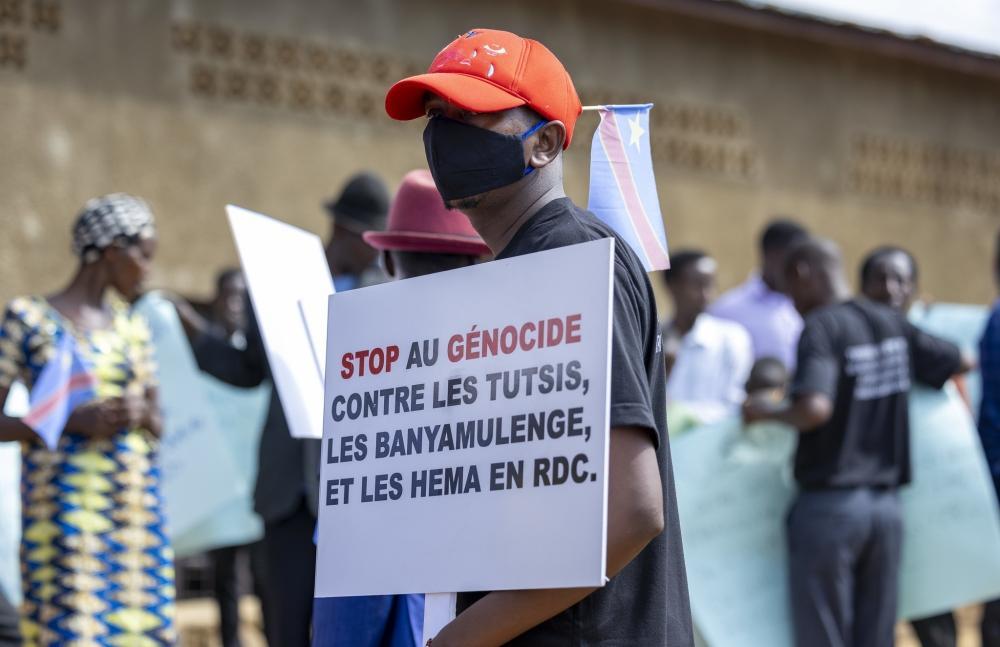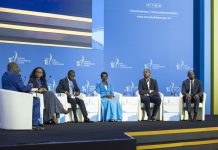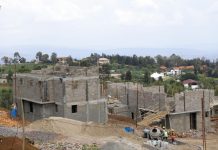Africa-Press – Rwanda. The association of survivors of the 1994 Genocide against the Tutsi, IBUKA, has condemned violence against Kinyarwanda-speaking communities, especially the Tutsi and Banyamulenge in DR Congo, calling for immediate action as the situation mirrors the lead-up the Rwandan tragedy more than three decades ago.
IBUKA also urged the Congolese government to engage in meaningful negotiations with M23 rebels and other marginalized communities to address their legitimate concerns.
The M23 rebel group, which recently captured Goma city in North Kivu Province and South Kivu Province in DR Congo, emerged as a response to the systemic marginalization and persecution of Kinyarwanda-speaking Congolese, particularly the Tutsi.
The movement has repeatedly called for the recognition of their rights as Congolese citizens, demanding protection, political inclusion, and an end to state-sponsored discrimination and violence.
“In recent months, inflammatory rhetoric from high-ranking Congolese leaders has reinforced discriminatory narratives, inciting violence against Kinyarwanda-speaking communities, especially the Tutsi and Banyamulenge,” IBUKA said in a statement on Tuesday, March 4.
“This rhetoric is particularly dangerous as it mirrors the language used in Rwanda before and during the 1994 Genocide against the Tutsi, where state-sponsored media dehumanized Tutsi populations as ‘invaders’ and ‘cockroaches’ to justify their extermination.”
IBUKA stated that the recent escalation of violence, compounded by state-sponsored hate speech and open collaboration between the Congolese government and the FDLR, a UN-sanctioned militia composed of remnants of those responsible for the 1994 Genocide against the Tutsi, represents a grave human rights crisis that the international community must urgently address.
“Despite claims that the [FDLR] is weak or non-existent, evidence, including the recent capture of FDLR Brigadier General Ezechiel Gakwerere, proves otherwise. The FDLR actively collaborates with the Congolese Armed Forces (FARDC), engaging in cross-border attacks and destabilizing Rwanda. This cooperation, facilitated in the presence of MONUSCO, raises serious concerns about regional security and the failure of international actors to take decisive action,” IBUKA said.
The association called for immediate international action to dismantle the FDLR, hold the Congolese government accountable for its support to the terrorist group and ensure that MONUSCO’s mandate is either strengthened or replaced with an effective intervention force.
The FARDC, which is supposed to protect civilians, has been directly implicated in mass killings, particularly in areas such as Minemowe, Uvira, North Kivu, and other parts of eastern DR Congo, IBUKA noted.
Reports indicate that FARDC troops have actively participated in the persecution of Tutsi and other Kinyarwanda-speaking populations, supplying weapons to extremist militias, including Wazalendo and the FDLR, which continue to commit mass atrocities.
The continued presence of FDLR elements near Rwanda’s borders poses a direct threat to national security and stability.
The association also referred to reports from eastern DR Congo that implicate the Kinshasa-baxked Wazalendo militants in atrocities against Tutsi populations, including acts of cannibalism, mass killings, and the destruction of homes and livelihoods.
“The persistence of such threats indicates a resurgence of the ideology that led to the 1994 Genocide against the Tutsi,” Ibuka said.
It also stated that despite having thousands of troops deployed in the region for decades, the UN mission in DR Congo has repeatedly failed to prevent massacres.
“Instead, they have often been accused of inaction and even complicity with local armed factions, while being aware of their mass killings and extremist actions. The failure of international bodies to take decisive action, despite being fully aware of every detail of the situation, further reinforces the fear that justice may once again be delayed or denied. The world must not turn a blind eye to the unfolding crisis in Eastern DRC,” it stated.
Traumatic reminder of the horrors of 1994
According to Ibuka, for genocide survivors, the resurgence of the FDLR and its collaboration with the FARDC is a traumatic reminder of the horrors of 1994.
“For Rwandan genocide survivors, the situation in Eastern DRC is a terrifying reminder of the events leading up to the 1994 Genocide against the Tutsi. The similarities between the current hate speech campaigns in DRC and those used by the genocidal regime in Rwanda before 1994 are striking and deeply alarming.”
This situation has caused severe anxiety, nightmares, renewed fears, and trauma relapses among survivors, as they see the same genocidal rhetoric and violence being directed at their fellow Tutsi in DR Congo, it said.
“The resurgence of genocidal ideology in the region has not only triggered profound psychological distress among survivors but has also raised fears that the same international indifference that enabled the 1994 Genocide against the Tutsi may once again allow mass atrocities to unfold unchecked,” IBUKA said.
“The DRC government must acknowledge its responsibility in perpetuating hate speech and violence against Kinyarwanda-speaking populations, especially the Tutsi. The international community must hold perpetrators accountable, starting with the government officials who promote these acts of genocide and refuse to be passive bystanders in the face of genocidal crimes,” the statement concludes.
For More News And Analysis About Rwanda Follow Africa-Press






